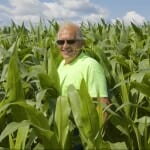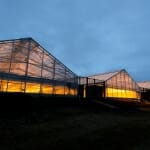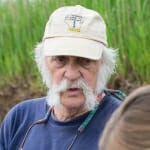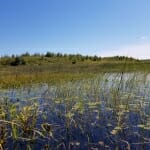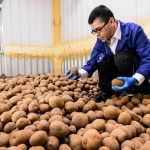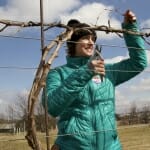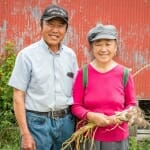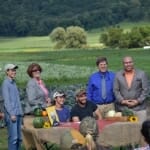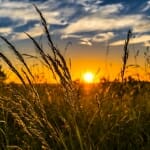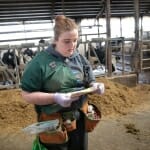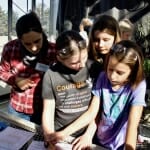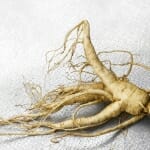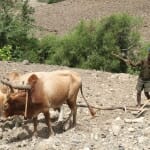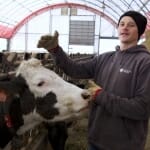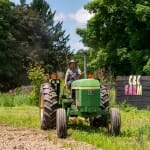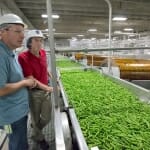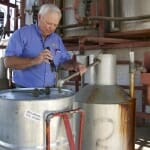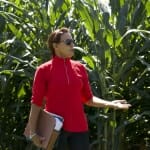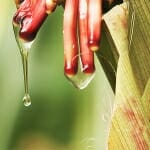Tag Agriculture
Science meets seat-of-the-tractor observations with Discovery Farms
“By the time Discovery Farms left Cashton in 2017,” says Jack Herricks, “the relationship had changed, the era of finger pointing and distrust had left. It was a pretty dramatic shift.”
Wild rice project sows seeds for university, tribal collaboration
A graduate student is working on a project to build connections between the UW and Native American tribes around wild rice protection and restoration efforts.
UW Changes Lives: Advice, research boosts Wisconsin potato growers
Wisconsin has a healthy potato industry, ranking in the top 5 nationally. It’s bolstered by support from the University of Wisconsin–Madison, ranging from supplying seed potatoes to advice on growing to research into pests.
UW Changes Lives: Experts advance new crops for long-term profitability
UW-Madison’s Division of Extension experts are helping Wisconsin farmers learn how to better grow crops like grapes, hops and hazelnuts, to support the bottom line in a state battered by low prices for corn, soybean and milk.
Lands We Share project about six state farms wraps up with Madison exhibit
Focusing on the intersection of farming, land, race, and ethnicity in the state, this initiative of the Wisconsin Farms Oral History Project set out with a goal of bringing people from diverse backgrounds together; people often separated despite living and working in the same towns or regions.
UW Changes Lives: New apprenticeship program creates a pathway to ag careers
“Apprenticeship is an excellent fit for vegetable farming because so much of how we learn to grow food – is by growing food.”
New mechanism of action found for agricultural pesticide fludioxonil
The fungicide was originally devised to protect seeds during storage but was so effective at limiting mold damage that it is now widely used to treat produce after harvest to extend its shelf life.
UW Changes Lives: Dairy industry support for grad students pays off
“This benefits the industry in two ways,” says the chair of the Department of Dairy Science. “Students conduct research that leads to new products and protocols and technologies. And they graduate as highly trained potential employees.”
Barley experiment reveals plant science to fifth-graders
A big part of 5th grade science project is the emphasis on using controls and variables in scientific experiment. How much water did you use? How often did you water? Did using hot or cold water make a difference?
To expand exports, Wisconsin ginseng industry relies on UW–Madison expert
The Wisconsin Ginseng Board came to Professor Ann McGuidwin to explore ways to assure Taiwan that the fresh roots would contain none of the R. similis nematode.
As climate heats up, rising rainfall averages hide crop-killing droughts
Research performed in the Ethiopian highlands shows that even in years with above average rainfall, crops can be severely reduced by drought early in the growing season, when seeds must sprout and get established.
UW course helps dairy farmer find small-farm success in a brutal market
The Wisconsin School for Beginning Dairy & Livestock Farmers, one of several “Short Courses” at CALS, helps beginning farmers like Andy Jaworski of the Green Bay area to get started.
‘Lands We Share’ exhibit helps give farmers a voice
A collaboration of faculty and students at four UW campuses, the traveling exhibition and public dialogue tour focuses on the intersection of farming, land, ethnic culture and history in Wisconsin.
Food processors, UW collaborate to remove guesswork from wastewater disposal
The results of a three-year study offer some support for the belief that much of the nitrogen in the wastewater from cheese-making and vegetable processing leaves the soil and harmlessly enters the atmosphere.
CALS professor uses diagnostic imaging to enhance understanding of muscles
Former college wrestler develops imaging techniques to more accurately evaluate muscle as it responds to aging and disease and how to best treat muscle wasting.
Extraction innovation could cut energy, streamline Wisconsin mint production
A UW–Madison professor is honing a more efficient way to remove mint oil from tons of mint plants. Mint oil is an essential flavoring for gum, toothpaste, mouthwash and tea.
Field days in Columbia County showcase agricultural science at UW–Madison
The field-day audience at UW–Madison’s agricultural stations has expanded beyond farmers to many throughout the ag industry who want to hear about the latest in farm research and education.
Corn that acquires its own nitrogen identified, reducing need for fertilizer
The corn secretes copious globs of mucus-like gel harboring bacteria that convert atmospheric nitrogen into a usable form, answering a longtime quest of scientists.

